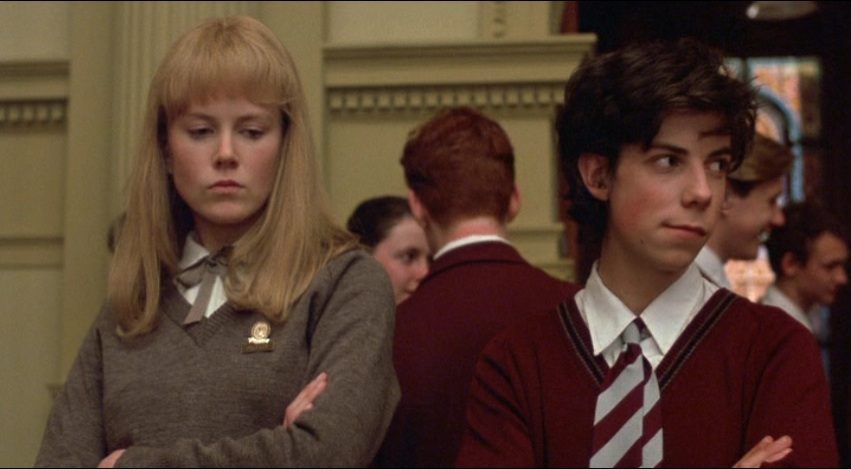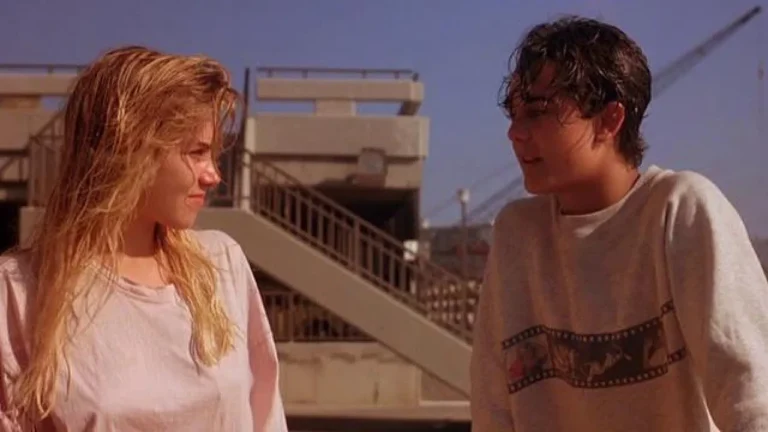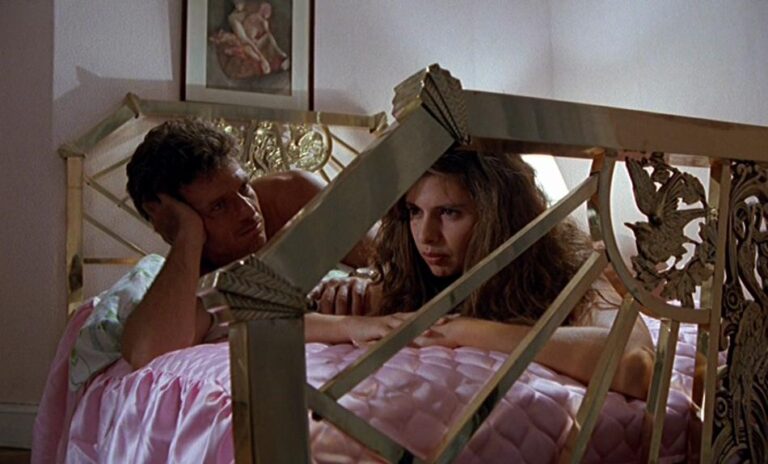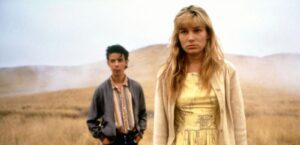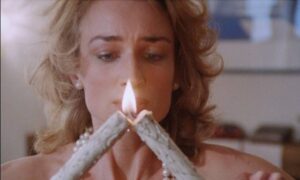![]()
Flirting (1991) Directed by John Duigan
What struck me most when I first watched John Duigan’s teenage elegy The Year my Voice Broke was its cosmic power to conjure up existentialism, eroticism and emotionalism through its rural scenery and heartfelt challenges. Flirting as a sequel to The Year my Voice Broke loses that candid ability to craft drama as poetry – which is unfortunate – but delves into sociopolitical matters more boldly than its predecessor – which is great – yet, unlike the first installment, this one is not as successful in eschewing the clichés ingrained in coming-of-age moviemaking. Still, although I found this flaw rather intrusive, the second part of Duigan’s autobiographical reminiscences was truthful to the adolescent experience. The latter is one of the attributes I appreciated most about both of Duigan’s pictures.
Our beloved main character Danny (Noah Taylor) is now 17 years old and far from the vast fields and rustic warmth of the small Australian town where he grew up, he is now studying in a rigorous boarding school where his parents sent him hoping that he will not fall into the bad life of the town after the tragedy that occurred in the first movie. The transition is gentle, if not seamless, Noah Taylor plays Danny with the same maturity with which we bid farewell to the wistful character at the end of The Year my Voice Broke, as soon as we hear the poised narration of Danny emotionally and intellectually introducing his present in that stern, academic milieu, we immediately know that this is the Danny we left at the conclusion of the other film. He has somehow moved on from the tragedy of the past, yet he still keeps a picture of his first love in one of his books; now, Danny casts his inquisitive eyes on the only black girl at the boarding school, the smart and self-assured Thandiwe Adjewa (Thandiwe Newton), and the two have a crush on each other. In the evenings Danny sneaks out of his dorm to go visit her and vice versa.
Aside from the romantic interplay between Danny and Thandiwe, the rest is the usual stuff if you’re familiar with coming-of-age flicks that are set in a boarding school. However, I am really blown away, once again, by the flair and sensitivity that John Duigan shows in depicting adolescent sexuality in such an accurate manner. As in Voice Broke, the teenage horniness here is intensely carnal, but filmed with tremendous tastefulness. The plot evolves through subtle tensions, first you have the obvious ones – ego disputes between teenagers, jealousy and an eternal battle between authority and rebellion – and then you have the more complex and implicit ones, these are the political ones. I mean the mere idea of having an interracial relationship as the socio-political nucleus of a plot that takes place in the 60’s is sufficient indication to tell that the film incorporates a political commentary, however, Duigan never treats his characters as political rhetoric, he respects them and never renders his underlying message explicit through them, they are only part of it, but not the totality of it. It is first and foremost a film about youthful ideals during the stage of mature and immature infatuation, and then it is a film about the heritage of post-war fascism and the social prejudices instilled in institutional hierarchies. Perhaps these two facets never converge evenly in the story, but it is still wonderful to see how Danny deals with them, which in the process enriches his perspective as a human being.
As much as I dearly missed the majestic scenery of the first film and its omnipresence as a spiritual quality, I must acknowledge that the architectural confines of the boarding school bring something new and exciting to Danny’s development. Thus, as commonplace as these confines are, Duigan approaches their commonalities with remarkable intelligence and exquisite style. Another aspect to emphasize in this sequel is the adolescent behavior. The tendency in the genre is to examine the student hierarchies in a cursory manner, but here it’s not the case, here everyone has so many insecurities that the hierarchies seem heterogeneous. Therefore, everyone feels like they share the adolescent experience from the same reality regardless of their social status. Nicole Kidman is singularly luscious as the delightfully obnoxious pretty popular girl at school. And Thandiwe Newton playing Danny’s romantic interest works marvelously as she collides with the inflated egomania of her judgmental fair-haired dormitory companions. It’s a terrific cast that fits seamlessly with the defiant candor of Duigan’s screenplay.
It may not be The Year my Vocie Broke, but it’s a – sad at times, funny at others – follow-up to Duigan’s eloquent autobiographical take on the passage of adolescence. Too bad Duigan’s endeavor was a truncated trilogy, because I would have loved to see Danny in a third installment.
